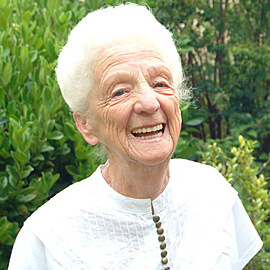You have scored a 10-year bonus! Government projections dictate we will live till to 90, but will our savings be up to it? Better health and medical advances mean you will now spend 20 to 30 years in retirement; if you are a woman, some of that will likely be spent on your own. 20 to 30 years is hard to comprehend - it's the same as a 30-year-old just entering parenthood thinking of what it might be like to be 50. Do you remember being 30?
The New Middle Age is 60
In just 12 years, the population of Australia is forecast* to be 23 million, up from 21 million today. Average life expectancy will exceed 84 years,** making 60 the new middle age.
Even now, the average age of a person entering aged care is 83.5 years. And just 20 percent of men reach a care facility, while 40 percent of women see out their days in one. This reflects the fact that because women live on average five years longer than men, they become the in-home carers for their male partners in the last years of life. Women then face five years on average on their own with little physical support.
In 2005, there were 2,503 Australians aged 100 or older. In eight years time, that number will exceed 10,000; by 2055, it will be 78,000.** Can we afford to live this long? According to Health Super, 25 percent of 50 to 60-year-olds have a mortgage on their home, the base of most our personal wealth. Southern Cross furthers that 31 percent of Australians aged 55 to 64 have no superannuation, while 54 percent have less than $50,000.
It is also worth noting that 45 percent of Australian males aged 60 to 65 have already retired from the work force, when workforce is defined as working at least one day per week. Most of us will have to make major adjustments to our retirement plans in our 60s so we can enjoy a satisfying lifestyle into our 80s.
How Will Government Help?
The Federal Government has established the portfolio of Minister for Ageing, a world first. The current minister - Member for Richmond, Justine Elliot - has been tasked with formulating a long-term plan to manage our ageing. The Federal Government has also established a Productivity Commission to examine the best ways to deliver services that will satisfy our needs at the most efficient cost. It is looking at ‘everything' with an ‘open mind' - one example is the re-training of nurses to carry out some of the simpler functions of doctors so as to ease demand in hospitals.
The Minister for Ageing is responsible for aged care, but not health - that remains the realm of state governments, who get most of their funding from Canberra. Aged care encompasses hostels (low care), nursing homes (high care) and home care (community care).
The Federal Government's overriding aim is to stall us all from going into aged care because it is very expensive; the average cost it currently has to shoulder is $147 per day* per person. Rather than building more bricks and mortar facilities, they want us to stay in our own home as long as possible and bring the services we need to us.
This is both a good and bad solution. It is possible to put off going into a nursing home if all we need is a nurse to visit us daily and physiotherapy once a week. Yet, it we are immobile and alone, we can also become a prisoner of our own home.
The Government cannot afford for this to be their problem - it has to be ours. Though not policy now, it will at some stage say we cannot expect to live in a very valuable policy while taxpayers support us to live. We will be expected to sell the house and largely fund ourselves.
Mental disease is the other major challenge we face as a society. While the incidence of dementia will grow in proportion to the size of the aged population, even more pressing will be depression, isolation and boredom - with loneliness being the biggest contributor.
This all means we will have to make decisions earlier than we think - plans and actions in our mid-60s will become the rule for setting up our later years. The time span being planned for will be 30 years.
Governments will promote village communities in the years to come as a key solution - they are very efficient with regard to land usage and operation; are funded by residents; and health services can be delivered easily with, for instance, one physiotherapist able to see 10 residents in one visit. The design of the actual homes will take into account no steps and wide halls for frames, and residents will no longer be prisoners of their own homes with ample company, plus 24 / 7 emergency support.
The prevailing message is don't wait for events to make this decision for you. Plan and act while you can still comfortably make major changes. Then your next 20 to 30 years can be an adventure, not a tragedy.
You will find that a major source of happiness is the sense of belonging to a community. Moving on from a long-held job, we lose the mental stimulation of interacting with people we mixed with every day. In our new life, we can look to our local community to replace this because it is made up of people with similar lifestyles and aspirations. Retirement villages are another option which offer us a sense of community. Remember, we all have a long time left to fill in. It can be either self fulfilling or just more of the same. It's your choice.






